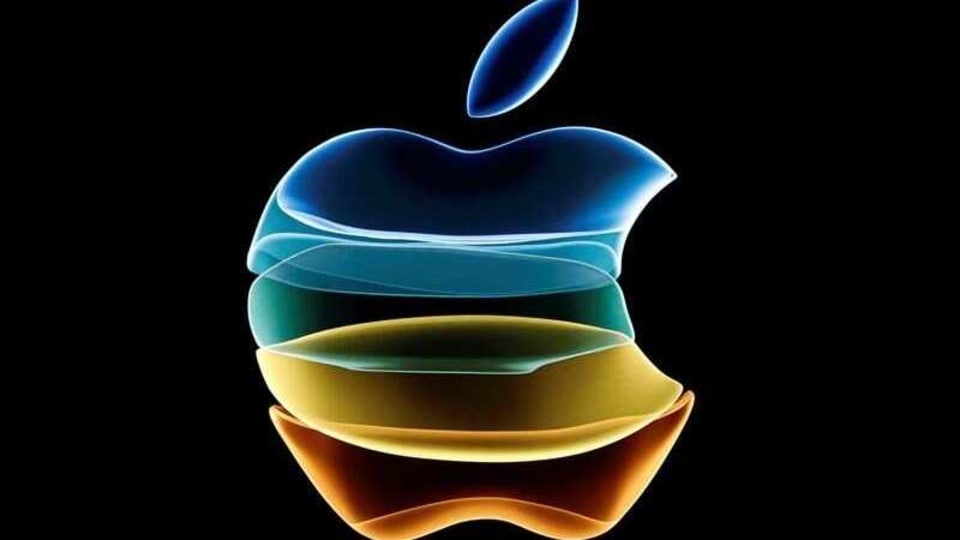Apple’s App Store rules scrutinized in US antitrust probe
In the Apple inquiry, the government’s lawyers have also asked developers about the App Store review process, during which Apple evaluates and either approves or rejects an app based on a series of guidelines

About a year into a US antitrust investigation of Apple Inc., Justice Department lawyers are scrutinizing rules that require many app makers to use the company's payment system, according to people familiar with the matter.
Government lawyers have met with developers as recently as last week and are asking questions about Apple's rules that require apps to use its App Store payment system for subscriptions, said the people, who declined to be identified discussing a confidential matter. Apple pockets up to a 30% cut when apps use the payment technology.
The Justice Department has been interviewing developers about Apple since mid-2019, the people said. The inquiry is continuing and no final decisions have been made about whether to bring a case.
Most of the resources of the department's antitrust division are focused on an investigation into Alphabet Inc.'s Google that involves the search giant's power in the digital advertising market. That probe is at a more advanced stage and a case could be brought as soon as this summer, some of the people said. Still, the U.S. inquiry into Apple's App Store policies was described as serious by a person familiar with the case.
The scrutiny shows that investigations of the country's biggest tech firms overseen by Attorney General William Barr continue to grow a year after they began. The Justice Department was set to meet Friday with state attorneys general about plans to sue Google for antitrust violations, according to one of the people.
ALSO READ: Apple App Store spurred $519 billion in sales last year
App Store Review
Sometimes developers approached the Justice Department, while at times the government made the initial contact, the people said. At least one major developer has had meetings with the department over the past 10 months, with conversations becoming more frequent in recent weeks. In the latest meetings with at least one major developer, the number of department lawyers also has increased, one of the people said.
In early conversations with the Justice Department, at least one developer was asked if Apple lowering its 30% cut would solve its concerns, but the person said the problem is less the commission and more that Apple doesn't allow an alternate payment system.
The Justice Department has met with both high-profile and small developers that sell apps. “We've spoken with the DOJ regarding Apple and the App Store twice,” said David Heinemeier Hansson, the founder of software company Basecamp, which created the Hey email app, in an interview. “We shared our experience, relayed the experience of others, and put them in contact with a developer who didn't want to go public with their story. I'm really glad that the DOJ is looking into this, because we need both legislative action, but also enforcement.”
ALSO READ: Apple calls a truce with Hey developer ahead of WWDC 2020
The government is also asking questions about the Google Play app marketplace, two of the people said. It isn't clear whether scrutiny of Google Play is part of the Justice Department's ongoing antitrust investigation into Google or whether the questions are being used to inform the Apple inquiry.
Representatives from Google and the Justice Department declined to comment. Apple has said 84% of apps are free and pay nothing to Apple, but declined further comment.
Aspects of the department's discussions with developers about Apple have been previously reported by Reuters, MLex, and Politico.
Apple has come under increasing fire in recent weeks. Earlier this month, the European Union opened an antitrust investigation of the iPhone maker. Regulators there are particularly concerned about how the company forces many developers to use its App Store payment service for subscriptions.
Last week, Microsoft Corp. President Brad Smith said it's time for antitrust regulators in the US and Europe to discuss tactics that app stores use to take advantage of those who want to distribute their software, in a reference to Apple.
The next day, Representative David Cicilline, a Rhode Island Democrat who is leading a House investigation of Apple and other tech giants, said in an interview with Bloomberg TV that Apple's 30% cut of sales is “highway robbery.”
Apple and Google are the dominant providers of app stores, the vast digital bazaars showcasing millions of games, productivity tools and other software available for download onto mobile devices. Globally, the two generated more than $83 billion in mobile-app spending by consumers in 2019, according to Sensor Tower data.
WATCH: WWDC 2020 Highlights
That power means most developers must work with Apple and Google if they want to reach billions of smartphone users as customers. The companies take as much as 30% of app sales, creating highly profitable businesses -- but also a rising chorus of critics who see an exploitative duopoly.
Unlike Apple, Google's Android phones allow users to access multiple app stores in addition to Google Play, which may help insulate the company from an antitrust enforcement action over its app store practices. Apple has said it doesn't allow multiple stores for security reasons.
At issue for some developers is the way Apple forces its users to pay for subscriptions and upgrades within the App Store payment network. Many apps aren't allowed to handle purchases outside of the App Store, ensuring Apple gets its cut of 15% to 30%.
Apple makes an exception for video, music, book reading and some other services to allow users to log in without buying a subscription in the app. However, as part of the rule, the services can't advertise in the app that users can buy the subscription online.
Netflix Inc., for example, tells users they can't subscribe to the service inside the app, but doesn't explicitly tell customers how to pay for a subscription online, thus avoiding violating Apple's rules. “We know it's a hassle,” the app says. Apple says developers can promote other pricing outside of the App Store, as long as they don't discourage purchasing within the App Store.
App Store Subscriptions
Other services choose to use Apple's payment system because it's simpler for customers. But that can make the product more expensive. For example, the Soundcloud Go+ streaming music service costs $9.99 through its website, but $12.99 when bought through Apple's App Store.
Apple's growth is at stake. If apps could sell subscriptions outside the App Store, developers could stop using Apple's payment system, causing the company to lose revenue. Fees from App Store transactions are estimated to be one of the largest contributors to Apple's services revenue, a business the company is trying hard to expand.
Other developers, including Spotify Technology SA and Rakuten Inc., a Japanese online retailer, have complained about the App Store for being both the store operator and a competitor. For instance, when it offered sign-up subscriptions on the iPhone, Spotify had to give Apple its 30% share. Spotify argued that Apple Music, its top rival, doesn't owe anyone a 30% fee.
Apple accuses Spotify of wanting “all the benefits of a free app without being free” and has accused Spotify of seeking to “keep all the benefits of the App Store ecosystem -- including the substantial revenue that they draw from the App Store's customers -- without making any contributions to that marketplace.”
In recent days, Apple has loosened up some of its restrictions, appeasing developers. The company opened up its HomePod speaker to third-party music services, such as Spotify, and will allow users to set third-party email and web browser apps as their defaults on the next version of iOS.
Basecamp last week had an update to its Hey email app rejected for not using the required in-app-purchase-system for subscriptions, but Apple reversed course after the developer added a free option.
The company also said it would stop rejecting bug-fixing updates that violate App Store review guidelines, allowing developers to remedy such issues in a future release. It will also, for the first time, let developers challenge specific review guidelines.
(By Mark Gurman and David McLaughlin)
Catch all the Latest Tech News, Mobile News, Laptop News, Gaming news, Wearables News , How To News, also keep up with us on Whatsapp channel,Twitter, Facebook, Google News, and Instagram. For our latest videos, subscribe to our YouTube channel.






























